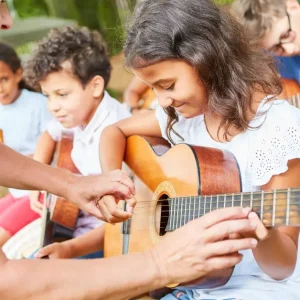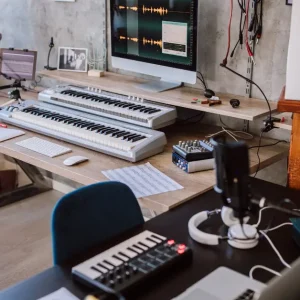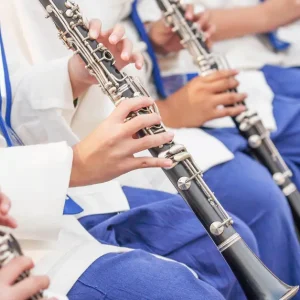Music is a big part of our lives. A song can bring back memories and make you feel the full spectrum of emotions. You probably sing along with your favorite tunes in the car and maybe have jammed out on an imaginary air guitar once or twice. Music is a unifying force. It can bring people together and help people understand other cultures. Several experts have even found that music – or rather learning to play musical instruments – can improve your IQ.
Music intelligence (music IQ) refers to a person’s musical ability and training. Does “music intelligence” actually make a person smarter, though? This guide will show some of the evidence for music IQ’s impact on overall IQ, including how music education impacts your child’s brain development and how well he or she does in school.
How Music Education Impacts IQ
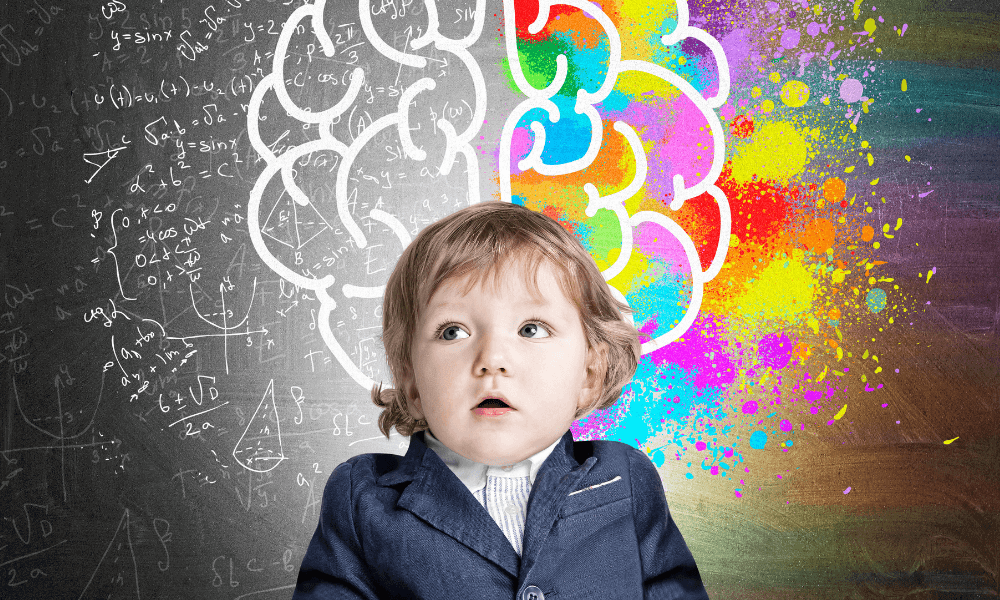
Schools today focus heavily on STEM (science, technology, engineering, and math) subjects. These disciplines are great in ensuring your child is prepared for a future career, but the philosophy often leaves off an important aspect of a student’s education – the creative arts, including music, art, drama, and dance.
Here are a few ways that music education impacts development and IQ:
- DIYS.com Study
A recent study coordinated with the largest DIY community in the world (DIYS.com) found that learning to play an instrument increases intelligence by up to 10%. The six-month study followed 4,694 volunteers in the community who chose to take up new hobbies during the COVID-19 lockdowns, including knitting, exercising, and learning an instrument. The volunteers took an IQ test at the beginning of the experiment and were then put into groups based on their chosen activities. The results were startling: The group that chose to learn a musical instrument had the highest IQ increase, from an average of 103 to 113, a 10% increase!
- A TED Talk: Music and Brain Development
There has been plenty of research on how learning to play an instrument improves cognition. A 2014 TED Talk by researcher Dr. Anita Collins focused on the connection between music learning and brain development, for example. As Dr. Collins described it, “fireworks” go off in musicians’ brains when they play an instrument. The key points of her TED talk include:
- Neuroscientists found that the brain “lights up” when it processes different information
- The brain works in intricate, interrelated, and astonishingly fast sequences when playing music
- Playing music is the brain’s equivalent of a full-body workout
In other words, learning an instrument is just as good for the brain as physical exercise is for the body. It’s just like physical exercise; the earlier you start, the better.
- Stanford University Study
A Stanford University School of Medicine study published in January 2021 looked at a sample of 153 musicians and non-musicians. It found significant differences in the brain structure of people who learned to play a musical instrument as children and then continued with their training, including that young children who started learning an instrument had stronger brain connections than those who took up an instrument later in life. The author of the study, Dr. Simon Leipold, found that the impact on the brain was even greater the longer they trained.
Funding for fine arts programs has been slashed in public schools for decades. The lack of arts education ignores the evidence that learning a musical instrument has a truly positive impact on IQ and academic performance. Music education, and building intelligence and improving grades, can positively impact your child’s mental and emotional health. It can also help your child enjoy school more, and they might actually look forward to going.
Learning an Instrument and Musical Intelligence
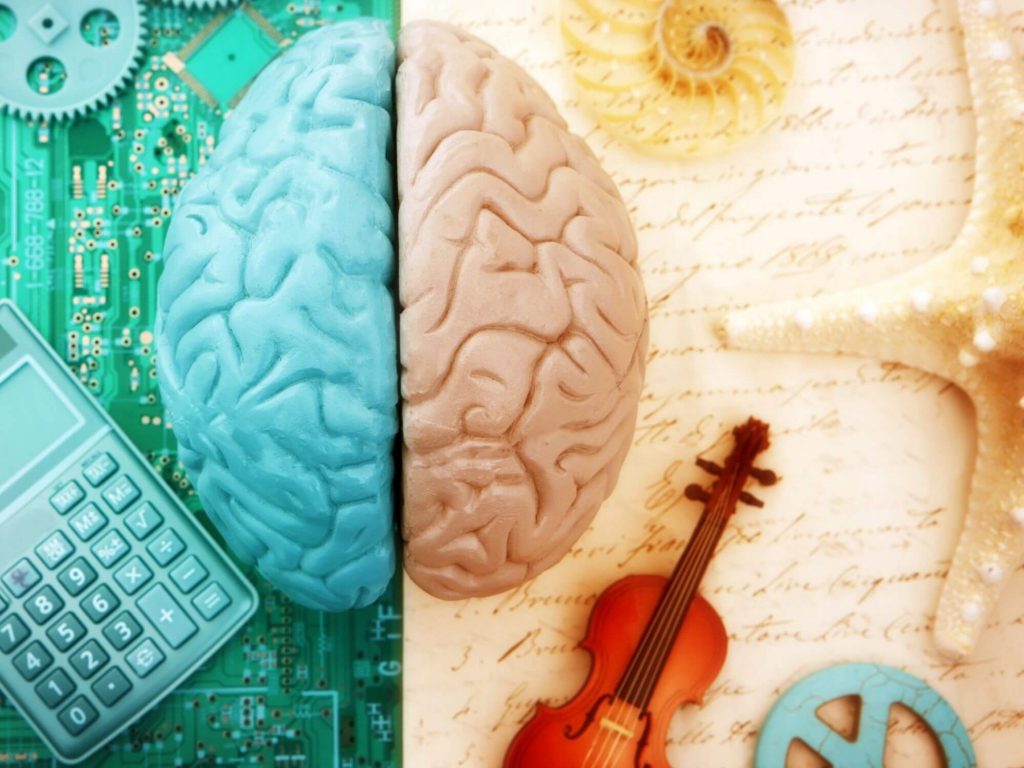
Learning an instrument can strengthen a student’s “musical intelligence.” This refers to an enhanced ability to recognize patterns, rhythms, and sounds in music. These high music IQ students not only appreciate music but are also gifted in music theory, composition, and performance.
Characteristics of musical intelligence include:
- Enjoying singing and playing instruments
- Listening actively
- Communicating through music/rhythm to evoke pleasure, surprise, and mood
- Recognizing musical patterns and tones
- Excelling at remembering songs and melodies
- Understanding of musical structure, rhythm, and notes
- Having a strong musical memory
- Having a good voice, singing in tune, singing with others, and creating harmonies
- Evoking mental satisfaction and harmony
Musical ability originates primarily in the right hemisphere (right side) of the brain, which is responsible for creativity. New evidence suggests, however, that trained musicians also draw significantly from the left hemisphere, which is responsible for logical, analytical, and strategic thinking. Research by Glenn Schellenberg (2006) found that musical intelligence and overall intelligence overlap. Playing an instrument forces the brain to work harder, which helps enhance abstract thought, analysis, and how new information is processed or “synthesized.”
It can also influence other cognitive functions, including:
- Visual-spatial skills
- Abstract math abilities
- Perceptual organization
- Reading skills
- Vocabulary retention
- Verbal abilities
- Memory
The link between music training and IQ in Mr. Schellenberg’s research showed that musically trained 9- to 12-year-olds had higher IQs than non-musically trained children. Musical instrument lessons are also associated with a positive performance in a wide variety of listening tasks, musical or otherwise.
Increase Your Child’s Intelligence with Music Education

Learning a musical instrument is a great option for your child to increase their brain development and IQ. Sloan School of Music in Hagerstown, M.D., provides private lessons, group music classes, and band programs for children, teens, and adults.
Instruments we teach include:
- Guitar
- Bass
- Ukulele
- Drums
- Piano
- Strings (violin, viola, cello, string bass)
- Woodwinds (flute, clarinet, saxophone, bassoon, oboe)
- Brass (trumpet, trombone, French horn, tuba)
We also offer lessons in audio recording, video production, and voice. All lessons are provided by our experienced music instructors. If you need information about renting or purchasing musical instruments, we can help with that, too.
Contact Sloan School of Music for more information on lessons, musical instruments, and more.






